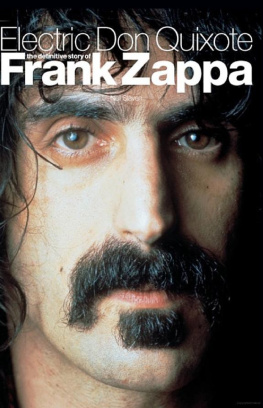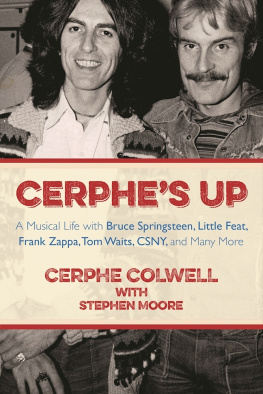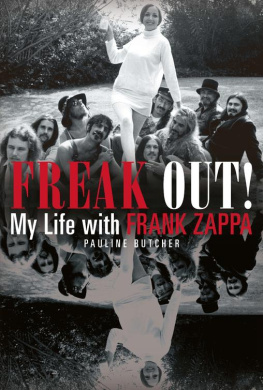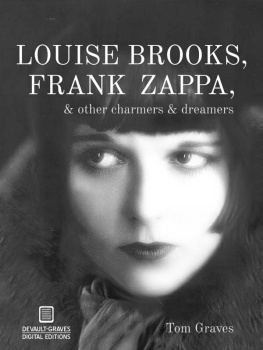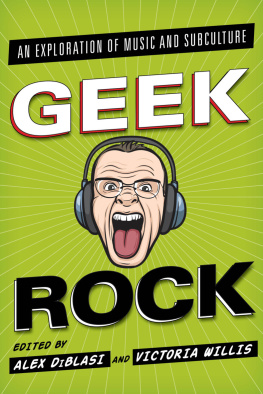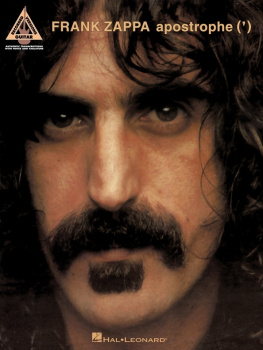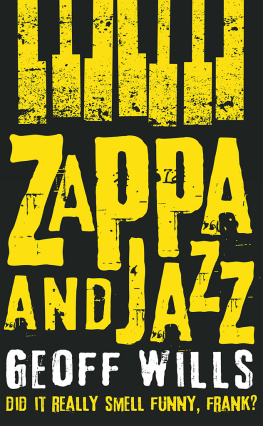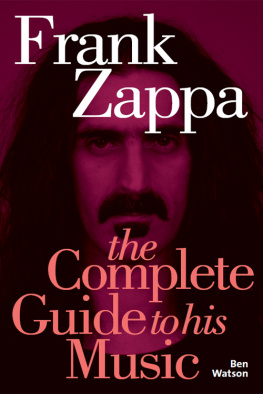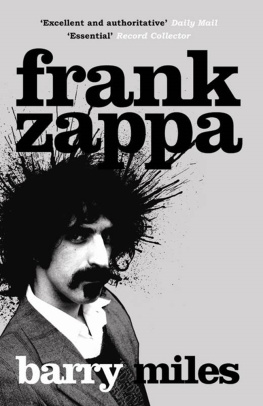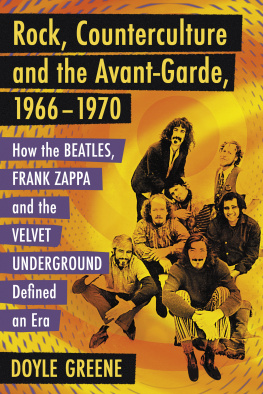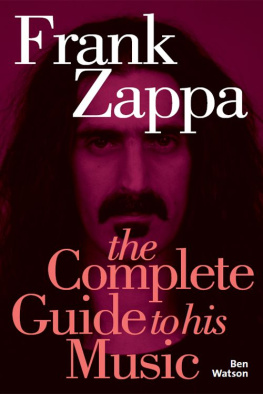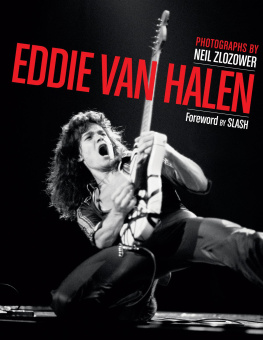Neil Slaven - Electric Don Quixote: The Definitive Story Of Frank Zappa
Here you can read online Neil Slaven - Electric Don Quixote: The Definitive Story Of Frank Zappa full text of the book (entire story) in english for free. Download pdf and epub, get meaning, cover and reviews about this ebook. year: 2003, publisher: Omnibus Press, genre: Non-fiction. Description of the work, (preface) as well as reviews are available. Best literature library LitArk.com created for fans of good reading and offers a wide selection of genres:
Romance novel
Science fiction
Adventure
Detective
Science
History
Home and family
Prose
Art
Politics
Computer
Non-fiction
Religion
Business
Children
Humor
Choose a favorite category and find really read worthwhile books. Enjoy immersion in the world of imagination, feel the emotions of the characters or learn something new for yourself, make an fascinating discovery.
- Book:Electric Don Quixote: The Definitive Story Of Frank Zappa
- Author:
- Publisher:Omnibus Press
- Genre:
- Year:2003
- Rating:3 / 5
- Favourites:Add to favourites
- Your mark:
- 60
- 1
- 2
- 3
- 4
- 5
Electric Don Quixote: The Definitive Story Of Frank Zappa: summary, description and annotation
We offer to read an annotation, description, summary or preface (depends on what the author of the book "Electric Don Quixote: The Definitive Story Of Frank Zappa" wrote himself). If you haven't found the necessary information about the book — write in the comments, we will try to find it.
Neil Slaven: author's other books
Who wrote Electric Don Quixote: The Definitive Story Of Frank Zappa? Find out the surname, the name of the author of the book and a list of all author's works by series.
Electric Don Quixote: The Definitive Story Of Frank Zappa — read online for free the complete book (whole text) full work
Below is the text of the book, divided by pages. System saving the place of the last page read, allows you to conveniently read the book "Electric Don Quixote: The Definitive Story Of Frank Zappa" online for free, without having to search again every time where you left off. Put a bookmark, and you can go to the page where you finished reading at any time.
Font size:
Interval:
Bookmark:
It seems like years since I commissioned this book. That was back in the days when I was a juggler and naively thought I could write, edit and produce the Guinness Encyclopedia Of Popular Music and simultaneously be a publisher, commissioning editor and radio broadcaster.
Neil Slaven first came to my notice as a name on the back of the famous Beano album by John Mayall's Bluesbreakers featuring Eric Clapton. His name would appear on dozens more Decca and Deram albums as a (credible) record producer. The UK blues boom of the late Sixties was an incredibly fertile time, and Slaven carved a niche for himself producing many albums by the Savoy Brown Blues Band, Chicken Shack and (very dear to my heart) the excellent Keef Hartley Band. In those days blues, folk rock, heavy rock and prog rock were feted by the same audience much the same that would have worn out imported copies of the Mothers Of Invention's Freak Out! or Absolutely Free. This was back in the days of US imports and Brace's record shop in Edinburgh and One Stop in London. They were the days when John Peel spoke in monotone, when everything, including Savoy Brown, Hartley and Zappa were reeeerly amyyyyzzzing. Zappa was really amazing, although most of us didn't understand why. Slaven was one of the very few who did he understood and appreciated Zappa then as he does now. The closest I got to Zappa was outside the Rainbow Theatre in London. Together with thousands of confused fans I waited for the chalk board to appear: SHOW CANCELLED. I have never forgiven FZ for getting thrown into the orchestra pit on the first show instead of the second.
In the intervening years Neil Slaven has become one of the leading authorities on the blues. He regularly compiles and writes album sleevenotes and reviews records for a number of magazines and journals. With the late Mike Leadbitter he wrote Nothing ButThe Blues and the indispensable Blues Records: A Selected Discography1943-1966. He has also been an important contributor to the Guinness Encyclopedia Of Popular Music and the Guinness Who's WhoOf Blues. And there lies the problem; typecasting. Just as Fred Astaire was made to dance, Neil Slaven was made to tell the blues.
Until now.
He was one of the earliest people to know that Zappa's cancer had returned and that it would be only a matter of time. He acted as a consultant for BBC television's documentary and got to meet a sick FZ in his home fortress. A number of books appeared shortly after his death and Slaven was hopelessly late with his. Mostly it was a case of overwriting the more he wrote the more he realised just how much he knew and felt about FZ and how similar they were in oh so many ways. The book that takes it's time is the one worth waiting for. I refused to pressure the author because he could have lost confidence or stamped his feet and thrown in the towel. I have dealt with a few Rumpelstiltskins in my time.
Frank Zappa's often brilliant combination of irreverent humour and 'serious' music has and will continue to baffle many. This musical bisexuality has made him misunderstood and hard to market. Why does somebody who has the gift of satire and comedy waste his time composing orchestral pieces? Why does a highly literate composer and brilliant musician choose to trivialise his work with pornographic humour? Because he is Frank Zappa.
At some stage, maybe not in Slaven's or my lifetime, FZ will be widely seen as a musical genius and one of the greatest contributors to music of the 20th century.
Electric Don Quixote is the best book that has ever been or is likely to be written on the phenomenon that was Frank Zappa. I would say that, wouldn't I, even though I have a strong belief that in years to come, when FZ is finally recognised, the adage, 'pass me a copy of Slaven's Zappa', will be a reality?
My thanks to Andy Childs, Bob Wise and Chris Charlesworth for helping this masterpiece on its way.
COLIN LARKIN, March 1996
When it happened, I was having a drink with friends at The Mondrian, a hotel on Sunset down the street from the Comedy Store, which 30 years before had been Ciro's. I'd been in town for ten days, researching in the basement of the new Los Angeles Library, a monolithic building that inside looks like Fort Knox in a Slide Area, and junking in second-hand bookshops and memorabilia stores for obscure interviews and press reports.
From a number of sources, I knew that Zappa's health was failing but people were still going up to the house. All week, I'd agonised about ringing to ask if I could pay my respects. But in the war between two principal character traits, timidity and arrogance, timorousness prevailed. After all, I wasn't exactly a close friend of the family.
Sunday morning was spent at the Pasadena Swap Meet, where I found a few magazines and resisted buying all the bootlegs on offer. The evening was quiet until around eight, when the radio announced that what we all knew had to happen but please God, not yet had taken place.
Frank Zappa was dead. And buried. Gone on his final tour.
He'd left just before 6 pm on Saturday, December 4, 1993, with Gail and Moon and Dweezil and Ahmet and Diva there to see him off. The other ceremony, unheralded, took place on Sunday morning, with family and close friends present. The rest of us would have to wait for the opportunity to indulge in sentiments that he always professed to be an inappropriate use of valuable time.
Well, Frank, I was upset anyway, OK? I'd only met you once and that had taken 24 years to achieve. The occasion had been less than momentous for you. Despite my advancing years, I'd been overawed and the lines of communication between my brain and my mouth had hung by a thread. Even so, you granted me several hours of your precious time as, for the umpteenth time, you ran through a long and productive career that needed days rather than hours to detail adequately. Then you introduced me to your family and showed me round the Utility Muffin Research Kitchen. You even set up the Synclavier and played some of 'N-Lite', explaining its operation to my uncomprehending ears.
Despite my being English and a journalist, you were tolerant and polite even though you were obviously in some pain, and let me gauge when my visit was over. Like many others before and since, I was leaving with the impression that I'd made a friend, even if that friend didn't have the time to indulge the need for further contact that was already coursing through my veins. We stood in the dark on the steps outside your house and shook hands. I looked into your eyes and said, "Good luck." It was a lame thing to say; we both knew that luck was not a factor in the inevitability to come. I drove away wondering, "Why did I end up being so trite when I wanted to be profound?"
But what do you say to a man whose music you've lived with for half your life? Who'd probably helped to shape your view of the world and your aspirations, even though the dedication and perseverance that he showed weren't yours to command? (We'd talked about my still-unrealised ambition to compile a film history of man's inhumanity to man, using Varese's Arcana as a soundtrack.) Who relentlessly pursued every one of his objectives while others wandered from indecision to self-indulgence? Whose thirst for knowledge and grasp of detail over a wide range of subjects continued unabated, in parallel with his musical explorations?
Right from the release of Freak Out!, Frank gathered people like myself, figuratively speaking, around him. In 1966, he chose to term himself and them freaks. Needless to say, they treated as a destination what he saw only as a point of departure. I never thought of myself as a freak, except insofar as liking the Mothers of Invention seemed to qualify me as one to friends who could only manage the stylistic leap from the Shadows to The Rolling Stones. As far as I was concerned, they took the easy option. I liked challenging music, so I'd heard Varese, Stravinsky and Penderecki. I didn't read music, I didn't understand what was happening. But I responded to the result, as I did to the drums of Burundi, the gongs of a Balinese gamelan orchestra or Moondog's eerie and unique percussion instruments recorded on Manhattan's Sixth Avenue. (We talked of him, too.) Even so, it was still hard to like Frank's music at first hearing. It was demanding, densely layered, sardonic and satirical. But once in a while there was a bluesy turn of phrase from the guitar which connected the Mothers with another of my musical interests.
Font size:
Interval:
Bookmark:
Similar books «Electric Don Quixote: The Definitive Story Of Frank Zappa»
Look at similar books to Electric Don Quixote: The Definitive Story Of Frank Zappa. We have selected literature similar in name and meaning in the hope of providing readers with more options to find new, interesting, not yet read works.
Discussion, reviews of the book Electric Don Quixote: The Definitive Story Of Frank Zappa and just readers' own opinions. Leave your comments, write what you think about the work, its meaning or the main characters. Specify what exactly you liked and what you didn't like, and why you think so.

